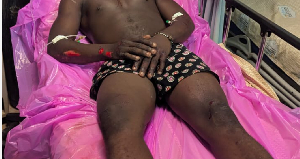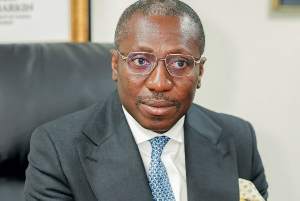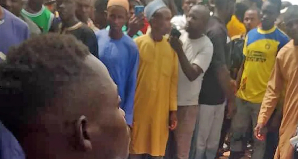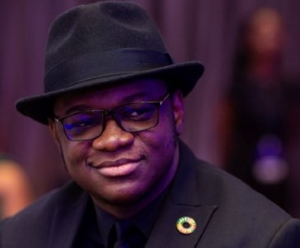By Anthony Kwaku Amoah
Background to Ghana Education Evidence Summit
The maiden Ghana Education Evidence Summit (GEES)-not GES as in Ghana Education Service-has just ended in Accra. As a vital part of the Research Agenda of the Secondary Education Improvement Project (SEIP), GEES managed to bring together over 200 researchers, policy-makers, practitioners and academics to think of how to advance education in Ghana.
The GEES, which was put together by the Ministry of Education (MoE), GES and the Innovations for Poverty Actions (IPA), seemed to have re-invigorated the spirit of collaboration among the participants and stakeholders of having to work hard to improve our nation’s education system.
According to the organisers, GEES was to gather policy-makers, researchers and practitioners to share evidence collected on education in Ghana, identify ways in which the evidence could influence policy and to develop research agenda to fill gaps in existing evidence.
The acting Deputy Director-General of GES (Management Services) and Coordinator of the 2017 GEES, Mrs. Cynthia Bosumtwi-Sam said, “In planning this summit, we have come to realize the need for more collaboration between policymakers and researchers to ensure that the research being conducted is testing solutions that could usefully inform our education policy in Ghana. We therefore expect this to be an annual summit in order to provide the platform for researchers to share research in education, especially where conducted in Ghana.”
“…a strong emphasis is being placed on collaborating with research institutions to bridge the research-policy gap. For this year’s summit, we are particularly interested in sharing evidence from empirical research conducted in Ghana for which results are available. In the process of selecting papers, we placed a premium on research with rigorous methods, where the evidence has policy relevance and lessons can be drawn for the whole system”, she added.
Opening the Summit
MoE Chief Director Enoch Cobbinah welcomed the participants and urged them to share available research findings for improved policy making and implementation in the country.
The Chairman of the Summit, Prof. Jophus Anamuah-Mensah, thanked the organisers for having initiated the event and urged them to intensify the national conversation on the use of research evidence in policy decision making and implementation.
Speaking on the theme, “Towards Quality Education: using Evidence to Achieve Better Learning Outcomes”, Prof. Joseph Ghartey Ampiah, the keynote speaker, who is also the Vice-Chancellor of the University of Cape Coast, said: “Research should be made to influence policy and practice and for this happen, policy makers, practitioners and researchers should listen to one another. Without fear of contradiction, I must say that several policy decisions have not been informed by quality research or sometimes any research at all.”
In opening the Summit, Education Minister and Manhyia South Parliamentarian Dr. Matthew Opoku Prempeh told the participants to deeply support the Government and MoE in tackling the challenges of our schools, including low-learning outcomes, absenteeism and indiscipline.
Structure of Panel Presentations
The Summit was laden in structure but notable in content. Participants related well with my records, as a rapporteur, showing massive attendance of education directors and principal officers. GES Director-General Jacob Kor was there and leaders of teacher unions were there.
There were panel presentations and workshops, where the participants shared knowledge on existing evidence in order to help influence pre-tertiary educational policy decisions.
There were three rounds of panel presentations with each round consisting of two panels, A and B. A participant chose to attend a panel spanning 45 minutes in each round with some five-minute break between sessions to enable the participant move to a different panel if he or she so wished.
The first session of Round One on Panel A featured Dr. Andrienne Lucas to deliver her paper, “The Importance of Information Target for School-choice Decisions” as Prof. Esther Duflo, in Session Two of Round One, spoke on “The Impact of Free Secondary Education: Experimental Evidence from Ghana”. Dr. Dorothy Glover was the chairperson of the panel.
Panel B had Dr. Sharon Wolf on “Quality Pre-school for Ghana: Developing, Testing and Scaling-up Supply-and-Demand-side Interventions to Improve Kindergarten Education in Ghana” as Session Two had Dr. Andrew Owusu speak on “Predictors and Implementation Rates of Policy Guidelines for School-level Health Services Delivery and Water, Hygiene and Sanitation among Primary and Secondary Schools in Ghana” with Akwasi Addae-Boahene as panel chairman.
Round Two on Panel A saw Prof. Eric Wilmot as chairman as Jamie Johnston touched on “Effectiveness of Interactive Distance Instruction: Experimental Evidence from Ghanaian Primary Schools” with Annie Duflo speaking on “Adapting and Evaluating Targeted Instruction Approaches into a new context through a nationwide Randomised Experiment in Ghana”.
Prof. Francis Amedahe chaired Panel B during Dr. Gabriel Botchwey’s “Reaching the Poor or the ‘well-connected’: School Targeting and Selection Dynamics under the Ghana School Feeding Programme” and Dr. Clement Adamba’s “Evaluation of Alternative School-feeding Models on Children’s Education Outcomes: Preliminary Findings from a Cluster-randomized-control Trial”.
The Round Three of Panel A put Dr. Evelyn Oduro in the chair over Dr. Paul Butakor’s “Using Hierarchical Linear Modeling to Examine Attitudinal and Instructional Variables that Predict Students’ Achievement in Mathematics” and the joint delivery of Prof. Jonathan Fletcher and Stephen Baidoo on “Pupils’ Understanding of Multiplication and Division in Multiple Contexts”.
Arjun Upadhyay and Robert Francis co-presented “Understanding Household and School Proprietor Needs in Low-fee Private Schools in Ghana” as Oni Lusk-Stover spoke on “The Role of the Private Sector in Providing Basic Education Services in Ghana: An In-depth Report” in Panel B with Very Rev. Sam Nii Nmai Ollenu as their chairman.
After the panel presentations, participants were thrilled with a lone panel presentation moderated by Eunice Brimfah Ackwerh on the topic, “From Evidence to Policy: What Experience can we draw on for Ghana” with Cynthia Bosumtwi-Sam, Dr. James Dobson, Prof. Jonathan Fletcher and Heidi McAnnally-Linz as the panelists.
Interestingly, a catalogue has been built for all the presentations with the writer hoping to relay relevant portions of these presentations to readers as his articles unfold. Questions like what are the most effective ways to keep students in school, how can classroom quality improve and so on could truly be tackled by evidence-based policies and programmes triggered by research.
The writer is an educationist and a public relations officer at the Headquarters of Ghana Education Service.
E-mail: amoatec27@yahoo.com/amoatec109@gmail.com
Opinions of Tuesday, 4 April 2017
Columnist: Amoah, Anthony Kwaku














